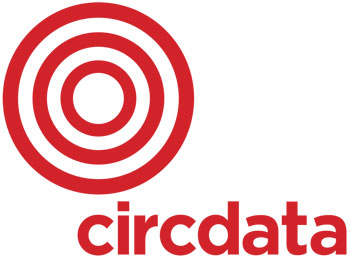
Q: How is the look and feel of events changing?
A:
Event organisers have had nearly everything thrown at them this year. Fresh off a worldwide pandemic, they are now being hit with double digit inflation, labour shortages, rising energy costs and supply chain demands. And these challenges are not going away for at least the next couple of years.So, the thinking now is about ways in which they can engage audiences in more sustainable ways, while delivering revenues effectively.
This has led to the emergence of an event strategy that has become the topic of conversation across the industry: 365 community engagement.
Community featured in many of the conversations at the recent AEO Conference and again at the EN Indy awards and conference.
Digital marketing and digital engagement are a key part of this strategy and have long been marketing staples. Now with virtual technologies evolving and offering the same (or similar) levels of engagement data, the opportunities are there for marketing teams and producers to deliver content and audience engagement all year round and not just in the lead-up to their event.
Furthermore, it is predicted over the next few years, something like 20% to 25% of large event company revenues will be delivered by digital engagement.
So going forward we will see more and more events emerging as all year-round experiences culminating in the main in-person extravaganza. An event where content and experience has been shaped through engagement with its community.
Q: How can event organisers maintain engagement between events?
A:
This is where the 365 community model comes into play.Its aim is to keep your audience engaged at all times. While they wait for your next event, they can enjoy webinars, check out upcoming and past events, and meet other members in organic ways.
At its core, this strategy is about community building, consolidating touchpoints, and extending opportunities for brand engagement.
Event attendees will become more like users as they continue to engage online, outside the confines of specific event dates.
So, it’s important to have a platform that enables you to bring together all your content and touchpoints and, most importantly, records their interactions.
Q: What role does data play in this?
A:
Ultimately, the model depends on understanding who your audience (community) is, what they want, and how you can enhance their experience.This is where data comes into the equation.
Data falls into four categories:
- Contact information (email address, preferences etc)
- Profile (demographics)
- Social (LinkedIn, Facebook etc)
- Activity (what content do they consume on your community hub and similarly at your event)
Contact and demographic information generally comes through past and present event registrations and enables you to understand who your audience are and how they like to be communicated with.
Knowing who your audience is, their profile, is key to understanding whether a particular group have a preponderance to consume certain content and / or seek to engage with particular exhibitors.
Social data enables you to understand what the hot topics of conversation are in your community and helps you create engaging and relevant content. When overlaid with profiles, you are able to target content at audiences that are not currently engaged. It also provides an additional method of communicating with your community outside of the community hub.
Activity enables you to understand how engaged with your content your community is and again coupled with profiling will enable you to target those who are not currently engaged. Either, as mentioned above, through social or email.
Q: What are the key data points event organisers should be focusing on?
A:
Contact name and email address are the absolute minimum. Armed with these, you can least communicate with them. It is important to let your audience know when they provide you with this information, that they are giving you permission to engage with them.Mobile numbers, social media handles are desirable.
Demographics are a must if you want to understand who your audience are but keep these relevant and minimal. Ask about job functions that are relevant to your community, similarly with business type. If there is other information that is relevant to your community and vital to your understanding of who they are, ask it.
Ultimately, you should aim to get all this information for all your contacts, and ideally you will have collected it when they initially registered.
Make sure that content in your community hub is tagged to mirror the demographics that you collect. Without it, you will not be able to ensure the profile of your audience is aligned with the content they are consuming.
Q: What can event organisers do to get people who have registered for an event, to actually turn up?
A:
Bringing your events into a community allows for your attendees, sponsors and exhibitors to play a part in your overall event strategy. They can see why they’re a part of your event. You’re not just having them come to a one-off event. You’re having them come back, ask questions, and contribute to ideas for content. Your community is now playing a role in the creation of your event, not just attending.Through this style of engagement, it is expected that attendance will become a must, a great way to hook up face to face with the likeminded people you engage with in the virtual world every day.
However, it’s crucial members find value in a 365 community model, otherwise, the community will soon start losing followers and eventually fall apart. You need to know your community well: understand what kind of content they want to see and why they joined your community in the first place.
Q: How can event organisers improve the service they provide to sponsors and stand holders?
A:
Technology now enables us in real time to provide feedback to organisers that will enable them to ensure that exhibitors and sponsors get maximum ROI.The key is ensuring that all the data and methods of collecting data are connected.
Lead capture apps are key to this but need to do more than just be a means of collecting business card information. They need to be connected to your central community hub; this will enable them to get full contact information and profiles in real time, and can be exported to their CRM for instant follow up by their marketing teams either on site or back at HQ. It will also feed back valuable information to the organisers on where the event traffic is.
Overlaid as a heat map across the show plan, organisers can instantly see which exhibitors are getting good footfall and those who are not. They can then target messaging to steer attendees in their direction. Or better still visit their stand and ask how they can help.
Similarly, it is now possible to provide instant feedback to sponsors on how many visitors attended their seminar session and include contact details and profiles.
Q: What's in the pipeline from Circdata?
A:
2023 is looking good.We continue to work with many of the organisers who were with us before the pandemic, as well as those who have joined us since. We’ve also brought on board many new events for 2023.
We’ll continue to listen to our organisers and the industry and provide them with the tools and support to make their events successful.
As part of the ClearCourse group of companies, we have the backing and investment that will enable us to continue to innovate and bring the best of breed solutions and service to our clients.
All in, the future looks bright for Circdata and we look forward to a busy and successful 2023.

About Us
Circdata is a technology-driven organisation that provides fully integrated audience management and development solutions to event organisers, publishers and data owners.
Established in 1994 as a data management company, it has developed a technology platform that offers web-based financial transaction and data processing tools – called Fusion – which meets the needs of both event organisers and publishers.
Tel: +44(0) 1635 869868
Email: hello@circdata.com
Website: www.circdata.com










